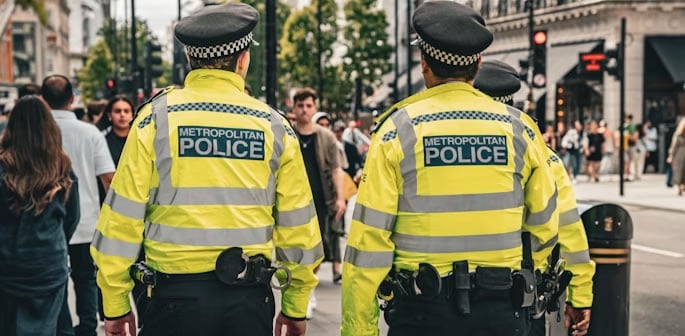decisions will remain with individual forces
Police have been told to consider revealing the ethnicity and nationality of suspects charged in high-profile cases amid growing pressure over transparency.
The interim guidance from the National Police Chiefs’ Council (NPCC) is aimed at reducing public safety risks where misinformation about incidents spreads widely.
Home Secretary Yvette Cooper welcomed the move as a “step forward”, saying the government and public want “greater transparency”.
The change follows criticism of authorities for allegedly withholding the identities of two men, reported to be Afghan asylum seekers, charged over the alleged rape of a 12-year-old in Warwickshire.
The guidance, effective immediately, is part of a wider review of the College of Policing’s professional practice for media relations.
It was developed with input from the Crown Prosecution Service (CPS) and Home Office in recognition of “public concerns” and to ensure police processes are “fit for purpose in an age of rapid information spread”.
The NPCC confirmed decisions will remain with individual forces, taking into account wider legal and ethical considerations.
It added that verifying a suspect’s immigration status is the responsibility of the Home Office.
A Home Office spokesperson said the public, and police themselves, want “greater clarity on when, why and how information is released” and the “legitimate and compelling reasons it may need to be withheld”.
The department will authorise the release of “relevant accompanying immigration information” in future cases “where it is appropriate to do so.”
Cooper previously said there needed to be “more transparency in cases” over the background of suspects.
Policing Minister Dame Diana Johnson said the government wants police to release such details in “most cases”.
She said the decision rests with the police and CPS, but “we want them to be as open as possible.”
When asked if releasing details after a suspect is charged, rather than arrested, would still allow misinformation to spread, Dame Diana agreed it could.
She called disinformation “a bigger problem for society” and said the government was working with social media platforms to address it.
She added that the release of any information must not prejudice a fair trial.
The government has asked the Law Commission to explore how more details can be shared without affecting trials.
Currently, College of Policing guidance does not ban revealing a suspect’s nationality, asylum status, or ethnicity, but does not require it either. This leaves disclosure largely at the discretion of individual police forces.
This has led to inconsistencies. In May, Merseyside Police quickly confirmed that a man arrested after a car drove into Liverpool FC title celebrations was white and British, quashing rumours of terrorism.
By contrast, the decision not to release information about Axel Rudakubana, later jailed for the murders of three young girls in Southport, allowed false claims to spread.
Authorities said this misinformation fuelled riots in England and Northern Ireland.
Deputy Chief Constable Sam de Reya, NPCC lead for communications and media, said the riots showed the “real-world consequences” of police information handling.
She said: “We have to make sure our processes are fit for purpose in an age of social media speculation and where information can travel incredibly quickly across a wide range of channels.”
A spokesperson for the prime minister said police and courts are operationally independent, but the principle is to be as transparent as possible.
Misinformation has increasingly been used to stir strong emotions across the political spectrum, sometimes leading to violence. The NPCC hopes the revised guidance will help prevent this.
However, some officers fear it will pressure them to reveal race and nationality in all cases, potentially escalating tensions.
Ex-Met Police Chief Superintendent Dal Babu warned of “unintended consequences”, saying it could trigger more online speculation in cases where such details are withheld.
He added: “The danger is there will be an expectation for police to release information on every single occasion.
“I have huge sympathy for my former police colleagues, because they’re in a damned if they do, damned if they don’t situation.”






























































